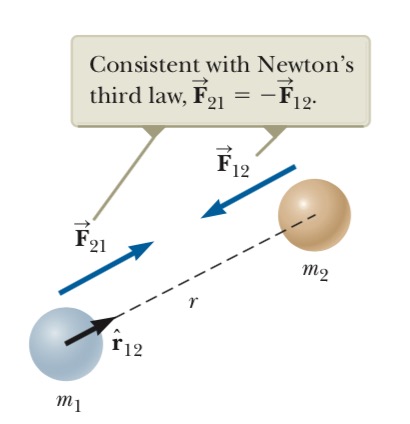Newton’s law of universal gravitation
every particle in the Universe attracts every other particle with a force that is directly proportional to the product of their masses and inversely proportional to the square of the distance between them.
If the particles have masses `m_1` and `m_2` and are separated by a distance `r`, the magnitude of this gravitational force is
`F_g = G(m_1m_2)/r^2`
where `G` is a constant, called the universal gravitational constant. Its value in SI units is
`G = 6.674 times 10^(-11) N • m^2//kg^2`

`vec(F)_(12) = - vec(F)_(21)`
